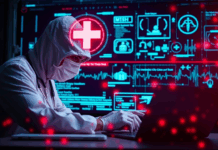
A recent ransomware attack on a New York-based biotech company, Enzo Biochem, has resulted in the exposure of sensitive information belonging to more than 2.5 million patients. The cyber incident, which occurred on April 6th, compromised clinical test data and approximately 600,000 social security numbers. Enzo Biochem, renowned for its bacterial disease detection capabilities, has confirmed the breach in its SEC filing, expressing concerns that employee data may have also been accessed by the malicious actors behind the file-encrypting malware.
The identity of the ransomware group responsible for the attack has yet to be disclosed, as investigations into the incident are ongoing. However, it is not uncommon for ransomware gangs like LockBit and BlackByte to target healthcare organizations due to the high demand for the sensitive data they possess on the dark web. Information such as social security numbers, dates of birth, insurance details, and payment card information can fetch considerable sums, depending on the authenticity and novelty of the sourced data.
Law enforcement agencies worldwide have been intensifying their efforts to apprehend notorious ransomware gangs. In response, these groups have adapted their modus operandi. Recent trends indicate that they are now targeting the same victims multiple times within a year. Consequently, the FBI has issued a warning, cautioning organizations against paying ransoms as there is no guarantee of receiving a decryption key in return. Instead, it is advisable for companies to rely on robust backup strategies for data recovery and refrain from incentivizing criminal activities by meeting ransom demands.
The ransomware attack on Enzo Biochem has exposed the personal and clinical data of millions of patients, highlighting the growing threat posed by cybercriminals to healthcare organizations. To mitigate such risks, it is crucial for biotech and medical firms to invest in comprehensive cybersecurity measures, including robust data protection protocols, employee training programs, and effective incident response plans. By prioritizing cybersecurity and adopting proactive measures, organizations can enhance their resilience against ransomware attacks and safeguard sensitive patient information.




















